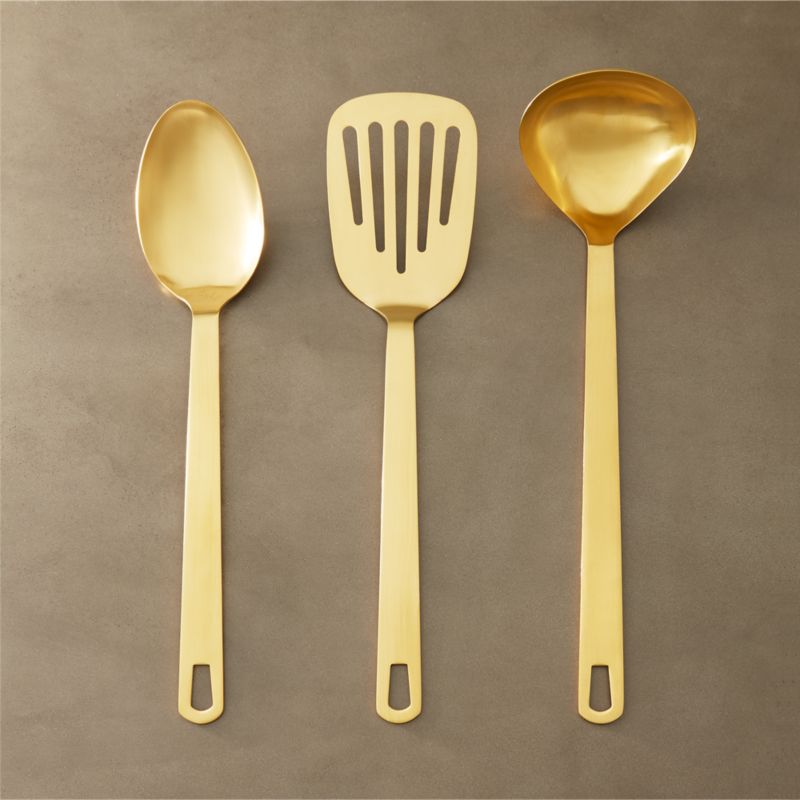Broadly, kitchen tools or utensils are essential elements used in a kitchen for cooking purposes; these may be appliances used to simplify processes or utensils used in preparing and serving food. Kitchen tools are often prefixed by the word 'ware' - e.g. kitchenware means tools and utensils in a larger sense but the term is used from a functional and merchandising point of view; similarly bake ware and ovenware categorizes utensils and tools used for baking, inside ovens etc. while cookware is for utensils used for specific cooking purposes.
Some significant categories like cutlery etc. are both eating as well as kitchen utensils - for e.g. knives are part of the cutlery in a kitchen which includes other cutting equipment, but are also used in dining, as are spoons and forks.
Other types of kitchen utensils, although not particularly referred to for any specific usage are also denoted using the word 'ware' - earthenware (clay, mud etc.), glassware, silverware; these specifically represent categories of kitchen utensils.
At the beginning of the 18th century most kitchen utensils were made of copper, iron or earthenware. For high temperature cooking these were coated with tin, enamel and other metals. However, each of these metals had individual properties and reactionary effects on the food that was cooked in them. In the 20th century, along with the above, aluminum, nickel, steel and tin utensils started making an appearance.
Copper is a popular kitchen utensil because of its attractiveness and durability; however they are rather heavy and need to be cleaned thoroughly to remove compounds that tarnish the color of copper. They can last for a long time if maintained well, and are not subject to cracking or breakage. But copper is unsuitable for cooking acidic foods.
Iron utensils are very popular but are prone to rusting as compared to copper. Cast iron utensils are better to use because they are not so prone to rusting. After use, they can be simply washed with mild detergent and wiped clean. Cast iron utensils are usually "seasoned", a process where they are allowed to form a coat or corroded iron that prevents further rusting. Certain cast iron utensils are used for particular purposes like frying or roasting; as long as water is not allowed to accumulate or heat on the cast iron utensil, rusting can be avoided and these utensils can last for a long period of time. Since oil and water do not mix, and since the presence of water specifically promotes rusting, it is very essential to keep these utensils dry all the time. Large iron utensils are stored for a long period by coating them with non-salted paraffin or fat. Iron utensils are perfect for high temperature cooking and very simple to clean; they become smooth with constant use, are very strong and durable.
Some significant categories like cutlery etc. are both eating as well as kitchen utensils - for e.g. knives are part of the cutlery in a kitchen which includes other cutting equipment, but are also used in dining, as are spoons and forks.
Other types of kitchen utensils, although not particularly referred to for any specific usage are also denoted using the word 'ware' - earthenware (clay, mud etc.), glassware, silverware; these specifically represent categories of kitchen utensils.
At the beginning of the 18th century most kitchen utensils were made of copper, iron or earthenware. For high temperature cooking these were coated with tin, enamel and other metals. However, each of these metals had individual properties and reactionary effects on the food that was cooked in them. In the 20th century, along with the above, aluminum, nickel, steel and tin utensils started making an appearance.
Copper is a popular kitchen utensil because of its attractiveness and durability; however they are rather heavy and need to be cleaned thoroughly to remove compounds that tarnish the color of copper. They can last for a long time if maintained well, and are not subject to cracking or breakage. But copper is unsuitable for cooking acidic foods.
Iron utensils are very popular but are prone to rusting as compared to copper. Cast iron utensils are better to use because they are not so prone to rusting. After use, they can be simply washed with mild detergent and wiped clean. Cast iron utensils are usually "seasoned", a process where they are allowed to form a coat or corroded iron that prevents further rusting. Certain cast iron utensils are used for particular purposes like frying or roasting; as long as water is not allowed to accumulate or heat on the cast iron utensil, rusting can be avoided and these utensils can last for a long period of time. Since oil and water do not mix, and since the presence of water specifically promotes rusting, it is very essential to keep these utensils dry all the time. Large iron utensils are stored for a long period by coating them with non-salted paraffin or fat. Iron utensils are perfect for high temperature cooking and very simple to clean; they become smooth with constant use, are very strong and durable.


Comments
Post a Comment